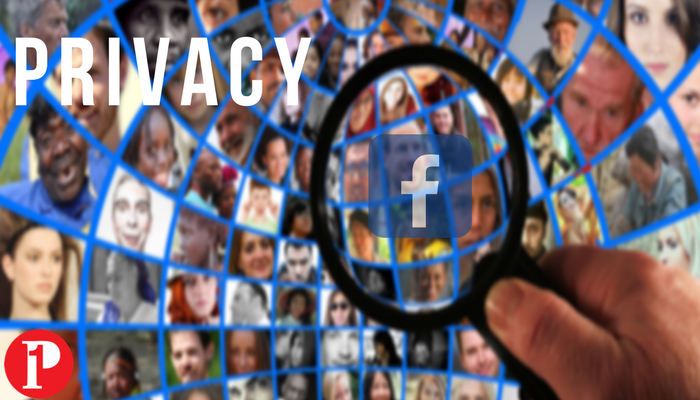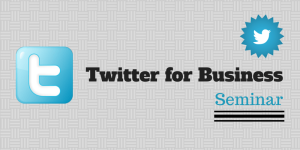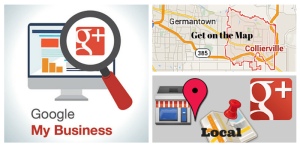
Are you concerned about your privacy?
Do you trust the companies and people in charge?
The line, “if you’ve got nothing to hide, you have nothing to worry about” is used all too often in defending surveillance and privacy overreach.
Decades ago privacy really wasn’t that much of an ongoing issue. In the days of agrarian society everyone seemed to know about everyone else’s business and personal lives. As we moved forward into an era of denser population centers due to the advent of of the industrial revolution suddenly, we collectively found a greater yearning for privacy.
In this current day and age we find ourselves slipping back to the agrarian mindset in some ways.
Governments the world over are moving to strip privacy from their citizens under the guise of security. One was the battle cry to protect the children which has given way, in most respects, to the fight against terrorism. That logic has the appearance of being sound for people who are afraid will be less likely to argue.
FACEBOOK TRACKING
What does Facebook track?
Facebook’s tracking stretches far beyond the company’s well-known targeted advertisements. And details that people often readily volunteer — age, employer, relationship status, likes and location — are just the start.
The social media giant also tracks users on other sites and apps. Even when you are not logged into Facebook.
It also collects so-called biometric facial data without users’ explicit “opt-in” consent, and helps video-game companies target “high-value players” who are likely to spend on in-app purchases.
“Facebook can learn almost anything about you by using artificial intelligence to analyze your behavior,” said Peter Eckersley, the chief computer scientist for the Electronic Frontier Foundation, a digital rights nonprofit.“
That knowledge turns out be perfect both for advertising and propaganda.
POLITICAL VIEWS
Will Facebook ever prevent itself from learning people’s political views, or other sensitive facts about them?” Facebook already knows your political views and will it use it control future elections?
In 2012, the Obama campaign encouraged supporters to download an Obama 2012 Facebook app that, when activated, let the campaign collect Facebook data both on users and their friends.
According to a July 2012 MIT Technology Review article, when you installed the app, “it said it would grab information about my friends: their birth dates, locations, and ‘likes.’ ”
The campaign boasted that more than a million people downloaded the app, which, given an average friend-list size of 190, means that as many as 190 million had at least some of their Facebook data vacuumed up by the Obama campaign — without their knowledge or consent.
If anything, Facebook made it easy for Obama to do so. A former campaign director, Carol Davidsen, tweeted that “Facebook was surprised we were able to suck out the whole social graph, but they didn’t stop us once they realized that was what we were doing.”
This Facebook treasure trove gave Obama an unprecedented ability to reach out to nonsupporters. More important, the campaign could deliver carefully targeted campaign messages disguised as messages from friends to millions of Facebook users.
The campaign readily admitted that this subtle deception was key to their Facebook strategy.
MARK ZUCKERBERG’S PRIVACY SHELL GAME
Let’s go back in time to 2010. Mark Zuckerberg uttered the words Privacy is dead on Facebook get over it. Check out this interview several years ago about privacy, notice how much he sweats answering these questions which is telling.
Facebook Manipulated 689,003 Users’ Emotions For Science back in 2012.
As first noted by The New Scientist and Animal New York, Facebook’s data scientists manipulated the News Feeds of 689,003 users, removing either all of the positive posts or all of the negative posts to see how it affected their moods.
If there was a week in January 2012 where you were only seeing photos of dead dogs or incredibly cute babies, you may have been part of the study. Now that the experiment is public, people’s mood about the study itself would best be described as “disturbed.”

Fast forward to 2018 Senate testimony…
MARK ZUCKERBERG APPEARED before Congress Tuesday, and for five hours, senators who appeared to have halting grasp of the company’s intricacies questioned the Facebook CEO on topics ranging from Russia to artificial intelligence. Zuckerberg for the most part gave considered answers to their questions—except when it came to the specifics of how users can control their privacy.
That Zuckerberg would dodge uncomfortable questions is a disappointment, though maybe no surprise.
OTHER PRIVACY VIOLATIONS
In February, for instance, a judge in Brussels ordered Facebook to stop tracking users on other websites. Facebook has appealed the decision.
And last Friday, the Italian Competition Authority said it was investigating Facebook for exercising “undue influence” by requiring users to let the company automatically collect all kinds of data about them both on its platform and off.
“Every single action, every single relationship is carefully monitored,” said Giovanni Buttarelli, the European data protection supervisor who oversees an independent European Union authority which advises on privacy-related laws and policies. “People are being treated like laboratory animals.”
Is regulation coming to Social Media?
HOW TO PROTECT YOUR OWN PERSONAL DATA ON FACEBOOK
Years ago when I first started conducting Facebook workshops I would share the ten companies that were hidden in Facebook settings that were collecting data. I showed participants where to turn that off. Over the years Facebook has hidden that completely, so we don’t know who exactly they share their data with.
Participants were amazed at the lack of transparency on the part of Facebook, which continues to this day.
The basic privacy options
If you’re not ready to dive into Facebook’s substantial settings menu, there’s a more user-friendly guide through the more vital privacy settings. Click on the question mark symbol in the top right of any Facebook page when you’re logged in, and select Privacy Check-up, an easy-to-follow walkthrough of your current settings as they pertain to “Posts”, “Apps” and “Profile”.
(Alternately, for an even quicker speed-tuneup, you can adjust who can see your posts, send you friend requests, or block users by hitting the question mark symbol and selecting Privacy shortcuts.)
If you want to do a deeper dive into your privacy settings here you go:
Profile, Privacy Settings:
- Go to: Privacy -> Profile -> Basic
Photos, Privacy Settings
- Go to: Privacy -> Profile -> Basic -> Edit Photo Albums Privacy Settings
Personal Information, Privacy Settings
- Go to: Privacy -> Profile -> Contact Information
Searching For You, Privacy Settings
- Go to: Privacy -> Search
Contact Information, Privacy Settings
- Go to: Privacy -> Search
More advanced privacy settings.
Great article on privacy settings using your mobile device.
FINAL THOUGHTS
There is a growing unease that Facebook and other tech giants are unfairly manipulating users.
If nothing else, the Cambridge Analytica has shown people what Facebook is and always has been: An alchemist that spins your data into gold. That’s not going to change. But the amount of transparency Facebook gives you around it still needs to—if only Mark Zuckerberg could see it.
Here’s a good place to start. Let’s require companies to post clear information about their data practices—no, not buried in privacy policies or Terms of Service, but prominently displayed in a simple, easy-to-understand, and standardized “dashboard” so consumers can compare companies’ practices.
Let’s give consumers an easy, consistent way to say ‘yes’ or ‘no’ to data uses that go beyond the reason they provided it, and ‘yes’ or ‘no’ to having their data shared with third parties.
For too long, companies have profited from consumer data without giving the owners of that data—consumers—the rights, protections, and clear information they deserve. For too long, companies have fostered the specious narrative that collecting and selling consumer data is completely “harmless” because its sole purpose it to tailor advertising and marketing to an individual consumer’s preferences. It’s time to address the real problem by establishing strong standards and accountability—not just for Facebook, but for all companies that collect, use, and profit from our personal information.
Will Apple, GOOGLE which collects a tremendous amount of data and other tech companies follow?
It all boils down to TRUST, do you believe Mark Zuckerberg will change his beliefs and way of thinking that he has continued to promote every since Facebook has been founded?
About Blair

Blair Evan Ball is a Social Media Coach and founder of Prepare1, a company that works with businesses, individuals and non-profits. He is a former executive with a Fortune 50 company, and his national division did $1Billion+ in sales annually.
Blair has written three e-books: Facebook for Business Made Easy, Facebook Pages for Business Made Easy, and WordPress Blog Setup Made Easy.
Blair also educates, trains entrepreneurs and business professionals how to amplify their brand, increase revenues, and raise more funds.
![[Study] How Will Businesses Change Their Social Media Activities 5 Golden Rules for Sharing on Social Media](https://www.prepare1.com/wp-content/uploads/2014/03/COACH-logohat-162x300.jpg) The Race is ON! | PREPARE | Get into the Game and WIN!
The Race is ON! | PREPARE | Get into the Game and WIN!










Comments on this entry are closed.